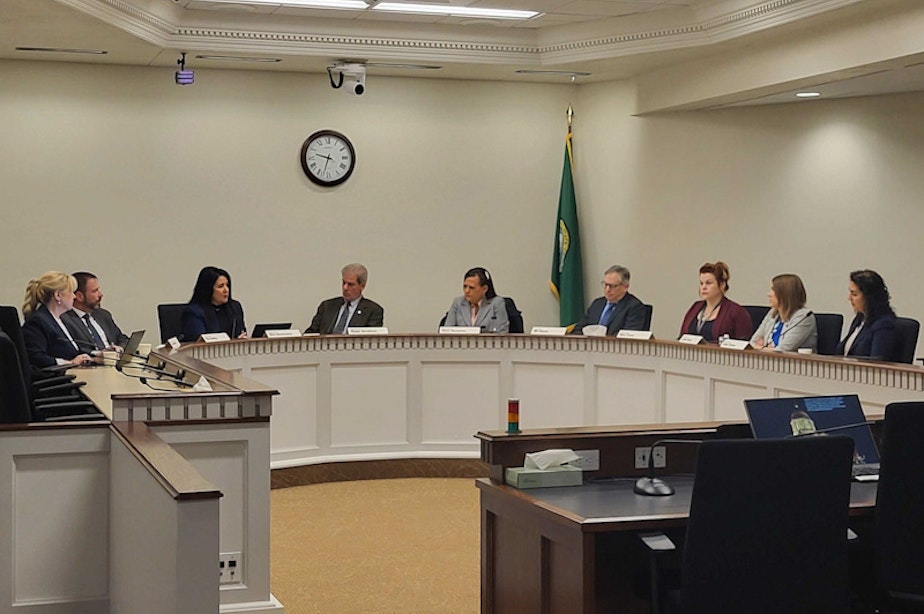Police pursuit, parent rights, income tax initiatives poised for final vote in Olympia

Washington lawmakers are moving forward with three high-profile voter initiatives that were approved in committees Friday.
The three initiatives would ban new income taxes, outline parents' rights to oversee their kids' schooling, and ease certain rules around police car chases.
Final votes are scheduled for Monday. It's possible that the Legislature will approve all three of the proposals, even as some members of the Democratic majority worry about the police pursuit measure's effect on public safety and question whether the other two proposals are needed.
According to legislative staff analyses of the various proposals, the police pursuit measure is the only one that will significantly change existing law. Sen. Manka Dhingra (D-Redmond) says she voted to pass the police measure in committee because of how many people across the state have thrown their support behind it.
"It's something that they feel will help and so I voted it out of committee because it was an initiative signed by multiple people," Dhingra said.
But Dhingra plans to vote against the measure on the Senate floor, citing concerns about moving the state away from best practices recommended by experts, and pointing to policies from law enforcement in her community that are more restrictive than the initiative.
The initiative does not require local departments to adopt the looser rules, which means some communities with more restrictive pursuit policies will not see a change even if the initiative is enacted into law.
Rep. Tarra Simmons (D-Bremerton) filed amendments to the initiative, including one that would have required officers to take racial bias training before engaging in a pursuit. But lawmakers cannot change the initiatives in any way so the amendments were not considered.
Simmons and Rep. Darya Farivar (D-Seattle) both voted against the measure, saying they're worried about the police pursuit changes and how they could affect communities already more acutely impacted by police violence.
"Black Americans are four times as likely as white Americans to be killed in pursuits – these are really shocking data points that I think we need to take really seriously here," Farivar said, citing data found in a recent investigation from the San Francisco Chronicle.
Republicans, meanwhile, are eager to pass the measure into law. They and other supporters say it will give police more leeway to do their jobs and deter crime.
Rep. Gina Mosbrucker (R-Goldendale), the ranking Republican on the House Community Safety, Justice and Reentry Committee, says she trusts law enforcement to make the right decisions to balance the risks of pursuits because they're required to undergo training for it.
"If it's safer to pursue, they can now pursue. If it's not safer, they'll make the decision – I have faith in them to not pursue and keep the public safe," Mosbrucker said. "We have to trust their instincts."
If lawmakers approve the three initiatives on Monday, they’ll send the policies to the Secretary of State – not the governor – to be certified. The initiatives would become law 90 days after session adjourns for the year.
Three more voter initiatives are heading directly to voters' ballots this fall. Those seek to repeal the state's carbon emissions auctions, repeal the capital gains tax and make the state's WA Cares long-term health care tax optional. [Copyright 2024 Northwest News Network]

